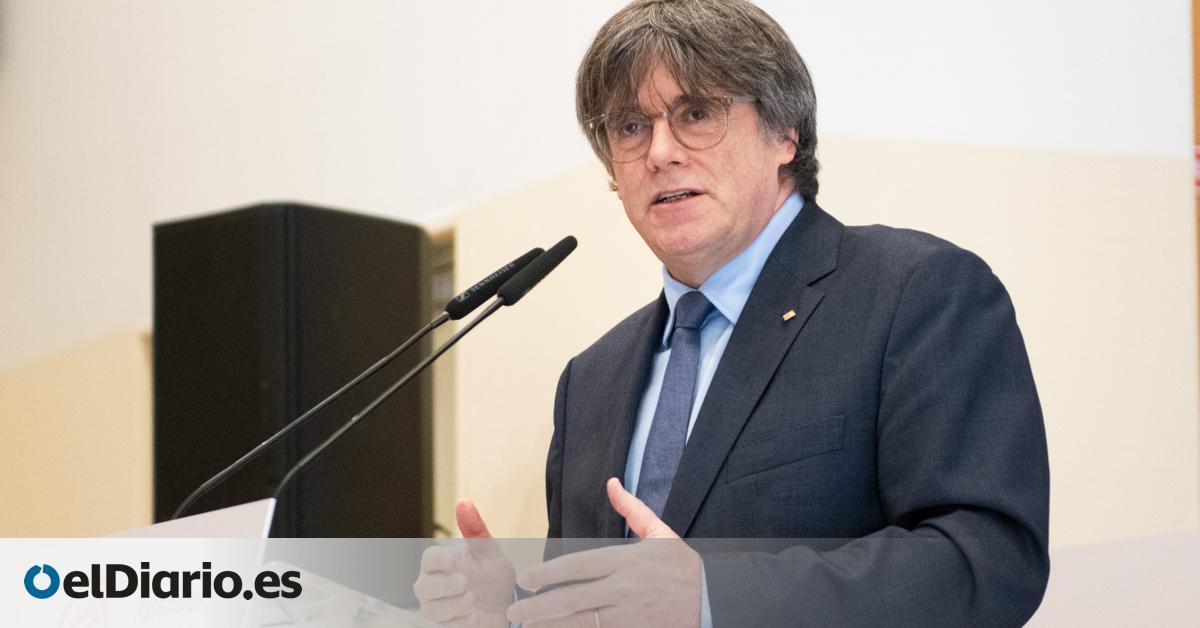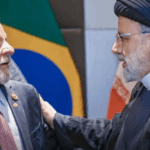
Former president Carles Puigdemont has assumed that there will be an amnesty law. He expressed this in a speech before the Consell de la República in France. In the midst of a countdown to finalizing an agreement with the PSOE, Puigdemont has assured that the independence movement begins “a new stage” in which the anti-repressive fight will no longer be “a priority.” Even so, he wanted to make it clear that the confrontation with the State “will not end.”
In fact, the former president has pointed out that after the victory of the amnesty law, the pro-independence formations will have to “regroup and mend” to once again face “unilaterality.” Puigdemont has invited the independence movement to “pick up the thread” where they left off before the amnesty became a priority and has once again put the focus on “the 1-O mandate.”
Likewise, he has warned that this time the strategy will not be merely declarative, but that it will have to be put “into practice” if the Government does not give in and agree to agree to a self-determination referendum.
ERC insists on “not wasting the opportunity”
The president of ERC, Oriol Junqueras, also had words today for the amnesty law and has called on the independence movement to “put aside short-term tactics” and, specifically, he has insisted on Junts to “not waste the opportunity” to approve the law, which will return to the Congress of Deputies next week.
In his speech before the National Council of the party, Junqueras continued to address Puigdemont’s supporters, to whom he reminded that “there are great objectives and noble aspirations that this country deserves to be realized” and for that, he said, it is necessary for the of Junts give their approval to the amnesty law, “which should allow some 1,500 people to be freed from persecution.”
Junqueras also recalled that the “latest version of repression is to try to accuse the independence movement of terrorism”, in reference to the case that the Supreme Court has opened against Puigdemont for this crime, a case that he has considered “cannot be sustained anywhere.” .
For her part, the president of Junts, Laura Borràs, has responded to Junqueras by highlighting the “firm attitude” of her party in the negotiation of the amnesty law and has stressed that her party’s objective is to “complicate as much as possible.” the “attempts to sabotage it.”
With these words he has thrown a dart at the Government of Pere Aragonès, whom he has accused of culminating “sociodependence” and of “not wanting to bother the socialists.” On the contrary, he has assured that his party wants a “robust law, so as not to leave anyone behind”, on the contrary, he has said, that ERC, whom he has accused of “wanting to approve it as soon as possible, the better”.
Junts considers that the Venice Commission agrees with them
Borràs also made reference during his appearance to the report published on Friday by the Venice Commission which, although it did not veto the amnesty law – as the PP wanted – it did criticize its processing through the emergency procedure, causing a “deep and virulent” division in Spanish society.
The president of Junts has considered that the advisory body agrees with them by not having voted in favor of the current wording of the law.
Borràs has also assured that his party wants “an amnesty law that includes all pro-independence supporters who have been unjustly persecuted, a law that is immediately applicable and that complicates as much as possible those who want to prevent its effects.”
Source: www.eldiario.es

